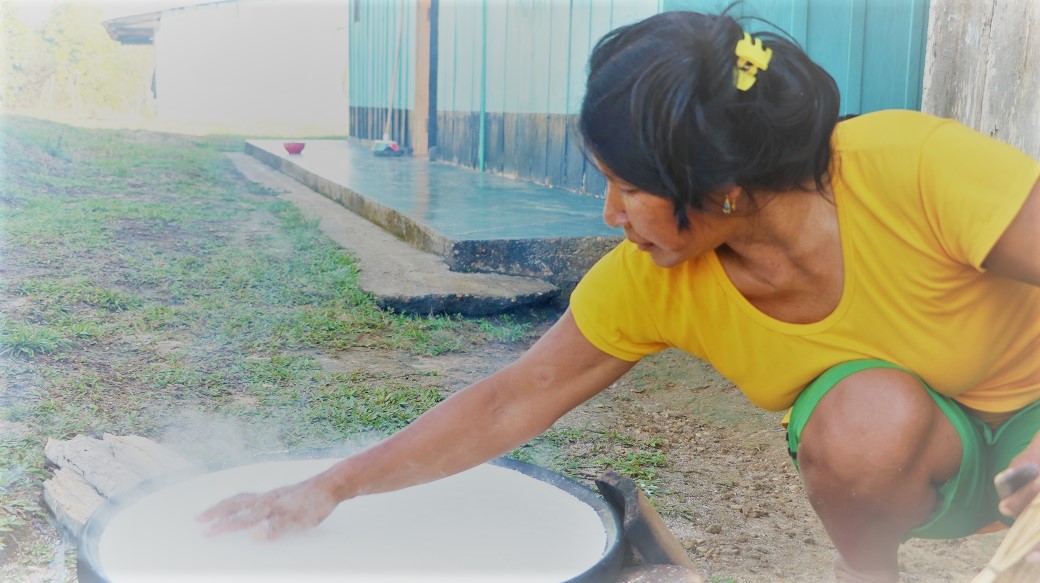Women’s Major Group Members at Rio+20 Call for End to Nuclear Power and Support for Safe Energy at Rio+20
Rio de Janeiro (June 18): Only two days before the official opening of the United Nations 20th Anniversary Conference of the 1992 “Earth Summit”, representatives from the Women’s Major Group delivered an impassioned rejection of nuclear power and a call for safe energy development in response to a half-day conversation between energy experts and civil society sponsored by the Brazilian government and entitled the “Rio+20 Development Dialogue on Energy” that they believed was bluntly promoting nuclear energy.
Representing non-governmental organizations from around the world, where women have been leading the call for a phase out of nuclear power and promotion of safe energy alternatives – wind, wave, solar power and energy efficiency and conservation, their message was loud and clear – all energy systems are not created equal – some are subsidised with billions of dollars whilst creating millenniums-long toxic pollution and others are indeed safer, cleaner and more appropriate for creating the sustainable future that governments are charged with shaping here in Rio.
At the NGO press conference following the close of the dialogue session, Makiko Imai, Board Member of the Japan Civil Network for the United Nations Decade on Biodiversity, said that the critical issue for her generation in Japan is how they will deal with nuclear energy. Imai stated, “The voices of women on nuclear is very important – in Japan, women are caring for the next generation and they are very worried about their children.” She continued – “Women don’t feel comfortable opening their windows and letting their children play outside around the Fukushima Area – the government says it is safe but they don’t believe them.”
“We know that the effects [from Fukushima] will be with us for generations.”
Imai added: “I don’t see very much hope in addressing this in the Rio negotiations now. However, we believe that Rio Principle 10 (Citizen Participation in Decisionmaking) and Principle 15 (the Precautionary Principle) from 1992 –are critically important to apply to technological evaluation and assessment of energy for the future.” Imai concluded, “What we would like to see in the outcome document here in Rio is a clear statement that [governments] should be more careful in dealing with nuclear and other dangerous technologies.”
At the women’s’ caucus today, when members heard that just a few days ago the Prime Minister [in Japan] decided to restart two reactors – they were outraged. “Everyone was so relieved when Japan closed down all its nuclear powerplants, which was surprisingly painless, and they had no blackouts!” said Sascha Gabizon, Executive Director of Women in Europe for a Common Future (WECF), one of the key organizations chairing the Women’s’ Major Group in Rio, “therefore, if Japan could do it, we believe that any country with nuclear power could do the same. WECF calls for a total phase out of nuclear energy by the year 2020.”
Echoing Imai and Gabizon, Kaisha Atakhanova, Director of the Social-Ecological Fund of Kazakhstan and 2005 Goldman Environmental Prize Winner for her efforts to protect Kazakh people from highly toxic radioactive waste said:
“My expectation is for all of us to understand that nuclear radiation creates an irreversible harm to health and the environment. We have well-known examples of radioactive contamination of course, like Fukushima, Chernobyl, and in my own country, Kazakhstan, we have the former Soviet nuclear weapons test site of Semipalatinsk. Generations of children have been born with health impacts including birth defects. To me, it is critical to ensure that nuclear power is explicitly excluded from the “Green Economy Roadmap.” Absolutely no (indirect) subsidies for nuclear power should be allowed.”
Svetlana Slesarenok, President of the Black Sea Women’s Club of Odessa, Ukraine proposed an alternative to nuclear: “The Ukraine is one of the most energy wasting countries in the world – our energy use is three times higher than our neighbour Poland. Only if we will be more energy efficient can we eliminate dangerous nuclear power from our lives. And, we are not the only ones. The list of countries that waste energy is long. Nuclear energy currently provides only 2 to 3% of total energy worldwide, we can easily eliminate that by energy saving – we propose energy efficiency to the Rio Conference as a path to a safe energy future.”
Christine von Weizsäcker, President of Ecoropa from Germany, offered a word of encouragement to the Women’s Caucus meeting today: « It took us 30 years – a whole generation of resistance- to phase out nuclear in Germany. Keep on persevering, never give up!”
For more information on the Japan Civil Network for the United Nations Decade on Biodiversity, please go to this link: http://issuu.com/rio20japan/docs/undb
Help us spread the word that #RioPlus20 must take a stand against nuclear power. Tweet @Women_Rio20 demand #NoNuclear for #FutureWeWant!
________________________________________________________________________________________________
The Women’s Major Group, comprised of over 200 organizations, is facilitated by three Organizing Partners – Women in Europe for a Common Future (WECF), Voices of African Mothers (VAM), and Development Alternatives with Women for a New Era (DAWN). It is supported by core members including, the International Network on Gender and Sustainable Energy (ENERGIA), Global Forest Coalition, and Women’s Environment Development Organization (WEDO).
For more information please see:
Website: http://www.women-rio20.ning.com/
Twitter: @Women_Rio20
Facebook: Women on the Road to Rio+20










